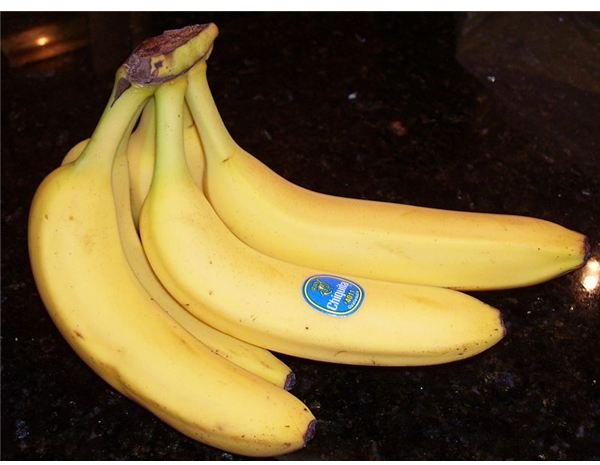Bananas: Health Benefits & Interesting Facts about the Banana
Banana Facts
Bananas are sweet fruits with a yellow jacket which needs to be peeled off to taste their rich flavor. The history of bananas goes back to 4000 years ago, when banana trees were grown in the Indo-Malaysian region to produce banana trees. From this region, they spread throughout tropical regions including South American countries, Southeast Asia and Africa.
The name banana stems from “banan”, an Arabic word meaning finger. There are various other common names for bananas including Canbur, Bananier Nain, Curro and Plantain. Many varieties of bananas are available, but the most distinct species are the Musa paradisiacal or plantain banana and the Musa sapienta (sweet banana). The American Supermarkets sell commonest species of banana: the Yellow Cavendish.
A Banana’s rich, sweet taste is loaded with nutrients and is a good source of vitamins and minerals. But, are there any banana health benefits? Are they good for our heart and body?
(Image Courtesy: Wikipedia )
Health Benefits of Bananas
Bananas have loads of nutrients:
A banana is a very rich source of potassium and manganese. It is also loaded with vitamin C and B6 and is rich in dietary fiber. Along with these key nutrients, bananas boast soluble and insoluble fiber, amino acids, carbohydrates and sugar.
Bananas boost our memory:
Many studies have suggested that bananas have the ability to enhance learning capabilities of students because of their high potassium-content. This was tested and confirmed on 200 students studying in a school in Middlesex, England. They showed marked improvement in their examinations after consuming bananas daily.
Bananas are great for your cardiovascular health:
The high-content of potassium in an average-sized banana helps in preventing elevated blood pressure. A single banana has more than 400mg of potassium, which is an important mineral for maintaining heart function and blood pressure. Not only does it prevent high blood pressure, but also helps to protect against atherosclerosis.
According to a study published in the Archives of Internal Medicine, fruits high in fibers help prevent cardiovascular disease. The fact that bananas are rich in soluble and insoluble fiber make them a perfect candidate for a heart-healthy snack.
Helps protect our kidneys:
More than 25000 people in America alone are diagnosed with kidney cancer each year. There are many causes including obesity, cigarette smoking, high blood pressure, and frequent exposure to toxic substances like asbestos. To counter-attack this, a study published on the International Journal of Cancer recommends fruits, particularly bananas, as the best protective measure for kidneys. If an average person eats bananas at least 4-5 times a week, he or she can reduce the chances of developing any conditions related with kidneys.
Banana Consumption and Storage Tips
• Bananas taste best when they’re fully ripened. Always make sure that a banana is free from any bruises, firm and is bright yellow in color. It has been suggested by many researches, including a research conducted at the Innsbruck University in Austria, that it is better to eat fully ripened fruits because of their high antioxidant benefits.
• Although bananas taste the best when eaten raw, there are many other ways to consume them. They can be a great addition to fruit salads and make great shakes. They are also used as a flavorings agent in many ice creams and pies as well as muffins and pancakes.
• While there are many banana health benefits, people suffering from latex allergies should not consume bananas because they contain a substance called chitinases. This substance has always been linked with fruit allergy syndrome. Some of these fruits are also processed with ethylene gas, thus increasing the level of such enzymes. So, it is always advised to consume organically grown bananas.
• Make sure you store unripe bananas in refrigerators if you do not want to ripen them up quickly. Once kept at room temperature, bananas ripen rapidly. Also, ensure that bananas are not stored in places where the temperature is too hot or cold.
